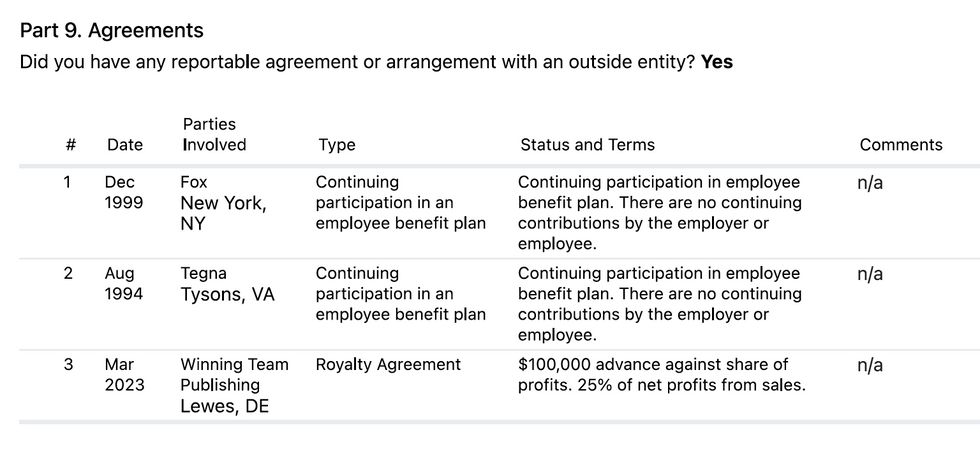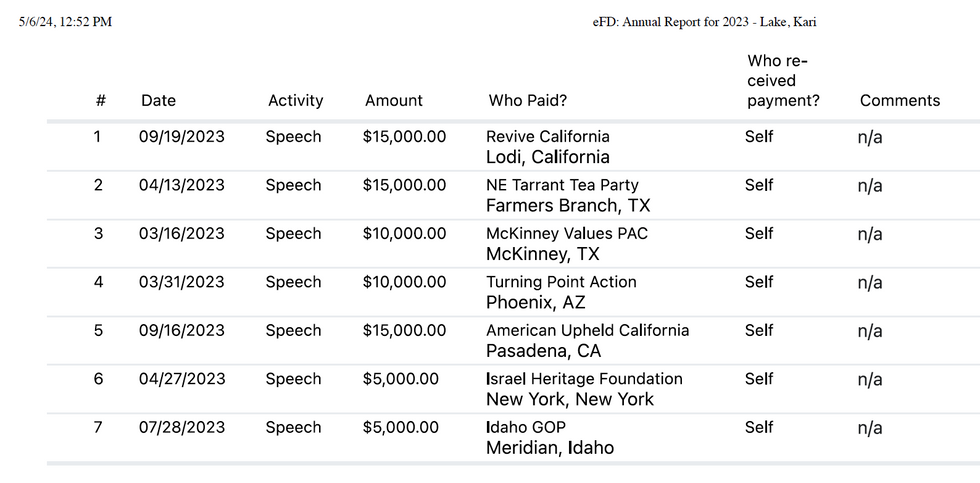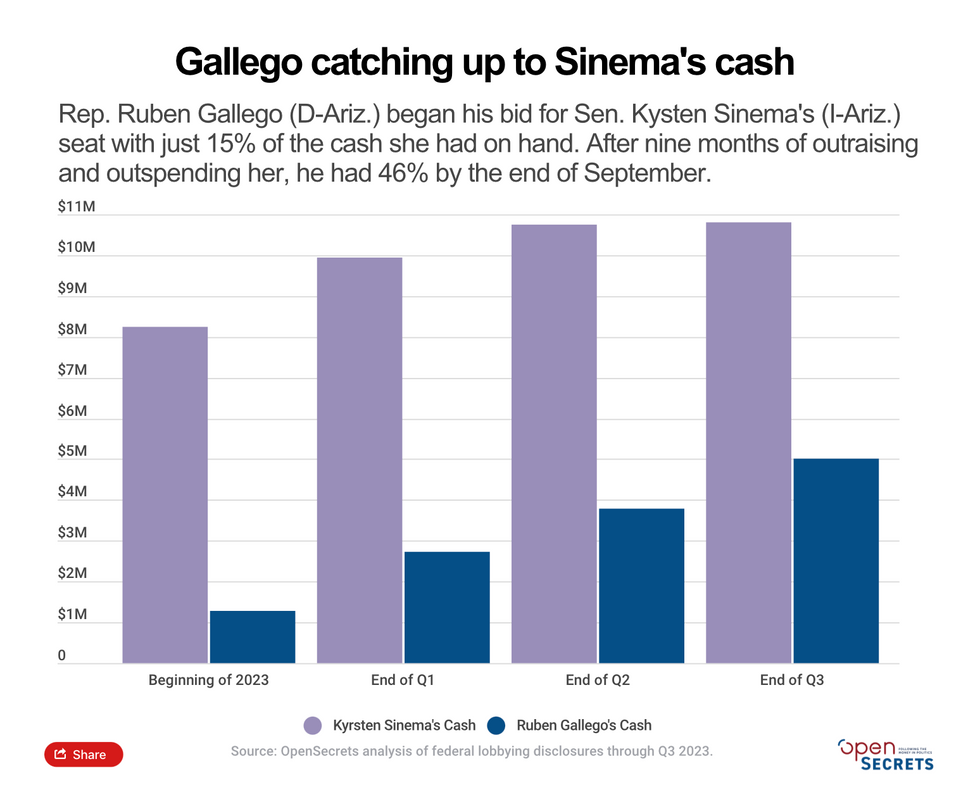WASHINGTON — The federal government is on the brink of a shutdown. Closures begin Oct. 1 unless Congress acts. The entirely avoidable affair, if recent history is a guide, would be disruptive at best and catastrophic at worst.
But, seemingly, the hottest debate in the U.S. Senate this week wasn’t over military spending or continuing resolutions. It was over … fashion.
Indeed, at the behest of Senate Majority Leader Chuck Schumer, the sergeant-at-arms nixed the chamber’s buttoned-up dress code, which today’s senators regularly flaunt anyway in deference to a proudly grungy minority.
“I plan to wear a bikini tomorrow!” Sen. Susan Collins (R-ME) scoffed at the lack of decorum, saying it “debases the institution.” (The 70-year-old senator remained fully clothed in public.)
POLL: Should Trump be allowed to hold office again?
Sen. John Fetterman (D-PA) — the bald, tatted-up and usually shorts-donning freshman — sparked the debate by bucking stuffy tradition and casting votes in outfits that’d earn many school children detention. He’s earned significant backlash from Republicans such as Collins and even a few Democrats, such as Sen. Dick Durbin of Illinois.
“Somehow I will manage,” Fetterman laughed to Raw Story on his way to cast a vote in his usual digs, which means flashing the ink on his thick forearms and showing off his pale calves. “It's just life on the razor's edge here, you know, and I think we're gonna be okay.”
Well, some of us. Federal workers, government contractors and many veterans are bracing for a shutdown that could last hours, days, weeks — who knows! Senators, meanwhile, took their fashion show on the road, literally: They got their usual Thursday all-clear to fly home just before the clock struck 2:30 p.m. EDT this afternoon.
Many of their cars idled outside the Senate chamber early, so they could jet out of Washington, D.C. the second Schumer rang their senatorial school bell.
ALSO READ: GOP lawmaker breaks financial law after ripping opponent for breaking financial law
With the government gripped by yet another manufactured crisis, some lawmakers did hurriedly try to save face. Almost on cue this afternoon, an exasperated group rolled out their No Budget, No Pay Act. The measure cuts off lawmaker’s paychecks until they do their most basic duty: keep the government’s lights on.
No Budget, No Pay isn’t new. It’s unfurled whenever politicians fail to make laws and instead produce nauseating gridlock. While lawmakers are now criticizing party leaders for not keeping Congress in session all summer, there weren’t No Budget, No Pay press conferences in July. What happened in July? Congress worked three of its four weeks – because of course they get all of July Fourth week off – the month before Congress gave itself all of August off, with House members taking an extra week to unwind after Labor Day, even as the Senate flew into town for a decidedly light three-day week.
This week, the funding crisis was debated in secret, even as lawmakers held more than a dozen press conferences … on not government funding. The countdown clock was muddled by competing pushes to ban federal mask mandates, end the 20+ year old Iraq war authorization, enhance rail safety, decarbonize “the American commute,” push the Farm Bill, celebrate Recovery Month – to name just a few.
You’d be forgiven if you wanted to bury yourself inside a Fetterman-style hoodie, size XXXL.
Things devolved so much between the fringe-right and Speaker Kevin McCarthy that on Wednesday lawmakers, Capitol Police officers, attendants and staffers readied for a working weekend in Washington. But by this afternoon – shortly after senators got their greenlight to jet-set away from their duties – matters devolved even further. Everyone effectively gave up. House members, too, were given the weekend off, as originally scheduled.
Still, attire was the talk of the Senate. And, it seems, of The View as well, as Fetterman was alerted by a reporter, who noted: “Alyssa Farah Griffin – you know, who is a Republican but a very strong Trump critic – has said that ‘you should dress for the job you want.’ She said this on The View this week.”
“I don't know whoever said that. I can tell you, I really don't spend any time thinking or caring about what and how they dress. I'm not sure why they would be obsessed with how I dress,” Fetterman, who apparently doesn’t watch much daytime TV, either, said. Fetterman laughed as said reporter casually mentioned former President Donald Trump’s name in an argument about respect for the Senate.
“But it's like, the same people that are upset that because I dress like a slob, you know, [were] all ready to support Donald Trump, who encouraged his followers to trash the actual institution and endanger [lives],” Fetterman said. “I wish I had the kind of mind that could hold those kinds of opposing views at the same time.”
The junior senator needed just look across the aisle for tips on juggling antithetical views.
This week, in rebuttal to the rules of old being upended, close to half the Senate – 46 Republicans – signed onto a letter to Senate Majority Leader Chuck Schumer advocating for the “honor and tradition” of the Senate, which they say is tied to the western attire its male members have worn since slaves constructed the majestic Rotunda overhead.
“I just think it's appropriate. I mean, if you're on the Senate floor – it’s a big deal to get up here, right? And so we represent the American public and so I think we ought to look the part,” Sen. Rick Scott (R-FL), who spearheaded the “Dear Leader” letter, told Raw Story.
Scott says — unlike the steady anti-Fetterman drumbeat in conservative media circles — his letter wasn’t aimed at just one senator.
“No. This is just, someone on his own tried to change the policy and, I think, if you want to do that why not bring it to the floor to talk about it?” Scott said.
It’s not just older members such as Scott who’ve joined Team Brooks Brothers over Team Cargo Shorts.
Other freshman senators – ones known to dress casually on their fly-in and fly-out of Washington days – are also now fierce defenders of an unwritten, arcane dress code.
“Show respect for the office,” Sen. Markwayne Mullin (R-OK) told Raw Story.
“Forget about decorum, it’s respect. I'm not a suit and tie guy. You’ll never see me in a suit and tie in Oklahoma, but I had a guy – a long time ago – who said, ‘I wear a suit out of respect for you.’ And I wear it out of respect for the office.”
Mullin offers an example.
“What would you say if a doctor showed up to do surgery on you and he's in a hoodie and a pair of shorts? And he’s in a surgical room and you're like, ‘You’re my guy? No.’ You do dress the part,” Mullin argued.
Tieless? Mullin’s cool with that.
“There's business casual, which is polos and a pair jeans or slacks. And you have business, which can be no tie or with tie. And you have business formal, which is with a tie. So just go business,” Mullin said.
The issue isn’t new to Fetterman who’s regularly mocked on conservative media for his casual wears and his stuttering as he’s recovering from a debilitating stroke.
“Fox News and whatever — their world is shattered, you know, because, you know, I'm America's decline and, you know, all this other stuff,” Fetterman said. “So I don't know if it's the clicks, you know, or whatever, but I really feel like we have more important things to be talking about and addressing.”
Just 9 1/2 more days until Shutdown Day. Or, in Senate time, just another few days in politics as usual.
 Kari Lake's second amendment to her financial disclosure report for 2023 includes the terms of her book deal.
Kari Lake's second amendment to her financial disclosure report for 2023 includes the terms of her book deal. Kari Lake's paid speaking appearances in 2023. (Source: U.S. Senate Office of Public Records)
Kari Lake's paid speaking appearances in 2023. (Source: U.S. Senate Office of Public Records)


 Credit: OpenSecrets
Credit: OpenSecrets U.S. Sen. Ted Cruz (R-TX) speaks during the annual Conservative Political Action Conference (CPAC) at Gaylord National Resort & Convention Center on March 2, 2023 in National Harbor, Maryland. Alex Wong/Getty Images
U.S. Sen. Ted Cruz (R-TX) speaks during the annual Conservative Political Action Conference (CPAC) at Gaylord National Resort & Convention Center on March 2, 2023 in National Harbor, Maryland. Alex Wong/Getty Images

